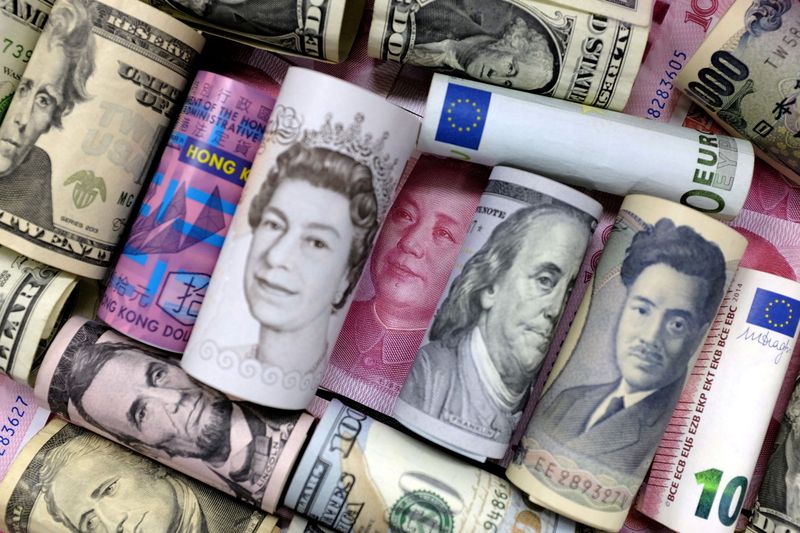(Reuters) – Countries should avoid spending scarce foreign exchange reserves intervening to support currencies that are weakening as a result of economic fundamentals such as interest rate differentials, the International Monetary Fund’s top economists said on Friday.
Instead, their focus should be on appropriate policy adjustments, IMF First Deputy Managing Director Gita Gopinath and economic counselor Pierre-Olivier Gourinchas wrote in a published blog.
“Specifically, foreign exchange intervention should not substitute for warranted adjustment to macroeconomic policies,” the two wrote as global finance officials gathered in Washington for the IMF and World Bank’s annual meetings.
“There is a role for intervening on a temporary basis when currency movements substantially raise financial stability risks and/or significantly disrupt the central bank’s ability to maintain price stability,” they added.
Most countries have seen their currencies decline against the dollar this year. An index of the greenback against a basket of major trading partners is up nearly 18% year to date; the Japanese yen, for one, is down 22% against the dollar this year.
The IMF economists said that economic fundamentals are the major factor in the dollar’s rise: rapidly rising U.S. interest rates and more favorable terms of trade — a rise in the prices for U.S. exports relative to its imports — caused by higher energy prices.
“Fighting a historic increase in inflation, the Federal Reserve has embarked on a rapid tightening path for policy interest rates. The European Central Bank, while also facing broad-based inflation, has signaled a shallower path for their policy rates, out of concern that the energy crisis will cause an economic downturn,” they wrote.
Meanwhile, low inflation in Japan and China has allowed their central banks to buck the global tightening trend.
Gopinath and Gourinchas said the appropriate response in most cases is to allow exchange rates to adjust to the stronger dollar while using monetary policy to keep inflation close to its target, along with some fiscal support for the most vulnerable.
“Although emerging market central banks have stockpiled dollar reserves in recent years, reflecting lessons learned from earlier crises, these buffers are limited and should be used prudently,” the IMF economists wrote.
(Reporting By Dan Burns and David Lawder; Editing by Simon Cameron-Moore)
